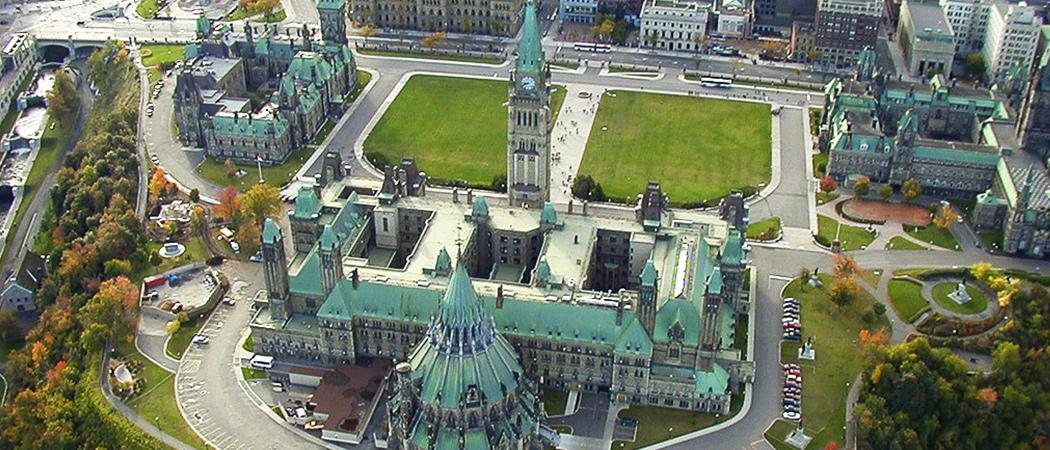Ottawa announcements add to the list of Western countries sanctioning relations with Russian science – and reflect huge Ukrainian community in Canada

The Canadian parliament in Ottawa. Photo: tsaiproject
Canada, with one of the largest Ukrainian communities in the West, joined the growing list of countries freezing research ties to Russia, and announced a special fund to support Ukrainian research students.
In a statement 11 March, the Canadian government said it is asking its federal funding agencies and several major grant recipients “to refrain from entering into agreements with Russian research institutions.” A spokeswoman said Ottawa is also “re-evaluating existing agreements.” And separately, the Natural Sciences and Engineering Research Council asked its grant-holders to suspend current collaborations involving Russian industry “effective immediately.”
At the same time, the government said it’s setting up a special fund to support research trainees from Ukraine. Modeled on an existing refugee programme run by the Canadian Institutes of Health Research, the new fund will accept applications from Canadian grant-holders who have Ukrainian research students. The government spokeswoman said information isn’t immediately available on the likely size of the Ukrainian fund.
Several Canadian universities have begun planning for new Ukrainian students, in addition to supporting those already in the country.
“We are looking at how we can facilitate the welcoming of future Ukrainian refugees” who meet standard admissions qualifications – though “we don’t expect big numbers,” said Patrick Hyndman, director of Polytechnique Montréal’s international centre. At present, 70% of its graduate student population is from outside Canada, but they include only one Ukrainian and two Russians on student visas. He praised the government announcement as “striking the right balance” between punishing Russia while maintaining academic freedom.
Canada’s big Ukrainian community
The announcement is the first broad statement from Ottawa since the Ukraine war began about how its big research sector should handle Russian relations – and they reflect the huge population of Canadians who claim Ukrainian descent. The country’s 2016 census counted nearly 1.4 million – 4% of the total population, and the largest Ukrainian ethnic community outside Europe. It had 622,000 of Russian descent.
The Canadian policy largely follows a pattern adopted by several European governments from Berlin to Stockholm: suspending some and banning new institutional deals, but also imposing no general ban on personal contacts with individual Russian researchers. The Canadian research councils said only ongoing individual ties “in areas that advance the interests of Vladimir Putin’s regime” should be avoided.
Since the war began, the Canadian government has been joining other NATO countries in a coordinated package of economic sanctions against Moscow – but as in most western capitals, so in Ottawa the question of academic and scientific relations has taken longer to work out.
That’s partly because, as the Canadian research councils’ statement put it, they recognise “the value of open science, and the historic role many scientists, academics and researchers have played in defending freedom from tyranny.” But also, in the special context of Canada, the federal government has limited direct powers to order research councils or provincially funded universities.
In most disciplines, Canada isn’t a major science collaborator with Russia; the two biggest, according to UNESCO, are the US and Germany. But there are extensive links in Arctic research – and in that area, Canada last week joined other western members of an intergovernmental Arctic Council in suspending meetings with Russia. It has over the years also had a series of space projects with Russian counterparts, including for the International Space Station and a planned orbiting lunar platform. As recently as 2019, the Canadian space agency was talking of expanding its Russian collaborations.





 A unique international forum for public research organisations and companies to connect their external engagement with strategic interests around their R&D system.
A unique international forum for public research organisations and companies to connect their external engagement with strategic interests around their R&D system.